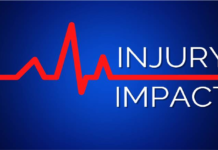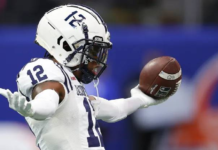With more than 20 candidates making a case for why they should be the Democratic nominee for president, it might be tempting to see the whole thing as one big circus. That’s certainly been the mood on Twitter the last two nights.
Yet, as NBC’s Chuck Todd pointed out, the group of candidates gathered in Miami is the most diverse ever to contend for the presidency — and how. With record numbers of both women and non-white candidates vying for the nomination, the Democratic field has made history.
And for millions of LGBTQ Americans, including myself, seeing the first out candidate take the debate stage as a contender — and a serious one — for president was nothing short of monumental. That Pete Buttigieg, the gay mayor of South Bend, Indiana, may have also emerged as one of the night’s winners seems like a too-perfect culmination to Pride Month.
In many ways, Buttigieg’s ability to run for the nation’s highest office owes to the radical transformation of American attitudes about homosexuality over the last several decades.
Yet his run also comes at a moment when that progress feels increasingly less secure. In less than two years, the Trump administration has pursued — with frighteningly little resistance — an aggressively anti-gay agenda, while more than a handful of states have also recently passed or are considering anti-gay legislation. According to the FBI, hate crimes against LGBTQ Americans have risen the past three years. And a new Harris Poll just found decreasing acceptance for LGBTQ persons among young Americans age 18 to 34.
Given all that, it’s surprising Buttigieg made so little of his gay identity Thursday night. Other than a passing reference to his husband, Chasten, in his opening remarks about college costs and a line about his marriage existing only “by the grace of a single vote on the Supreme Court” in his closing comments, Buttigieg played the night straight, focusing instead on the humanitarian crisis at the Southern border, his plan for “Medicare for all who want it,” and how he would tackle climate change. When asked about his first priority should he take the Oval Office, Buttigieg promised to “fix our democracy before it’s too late.”
That’s probably not surprising for the serious-minded Buttigieg. The Harvard grad and former Rhodes Scholar certainly emerged as one of the most thoughtful candidates of the night, and he appears to feel more inclined to focus on his managerial credentials than share his personal details.
But touting his executive experience as mayor of a mid-size city — only the fourth largest in Indiana — may not be the winning play for Buttigieg in the long run. With questions mounting about his hometown’s tense race relations and his poor handling of issues with South Bend’s police department, Buttigieg may need to elevate his personal story over his executive experience if he wants to remain viable. For now, he still doesn’t seem to have the right answer on the biggest question facing his young candidacy. When asked why as mayor he hadn’t been able to increase the number of African-American police officers in South Bend — only 6 percent of the city’s police force is black, compared to 26 percent of its population — Buttigieg answered honestly, although devastatingly, “because I couldn’t get it done.”


















